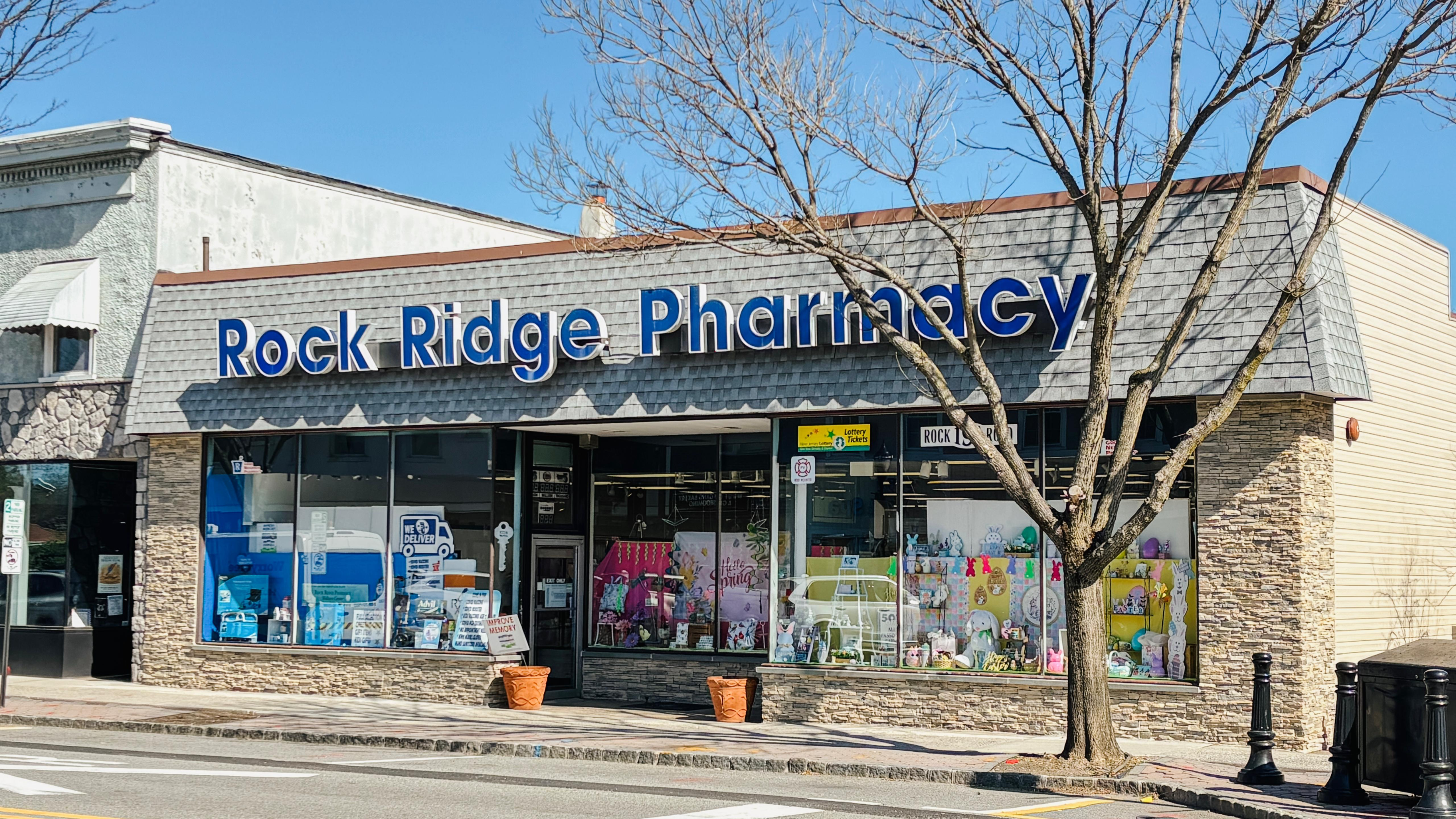Compounded Formula • Prescription Required
Nifedipine Ointment
Rock Ridge Pharmacy prepares customized Nifedipine Ointment for relief of anal fissures, hemorrhoids, and related anorectal conditions, offering a tailored option when standard therapies may not provide adequate results.
Nifedipine Ointment for Anal Fissures
Anal fissures are small but painful tears in the delicate tissue around the anus, often causing burning, bleeding, and significant discomfort during bowel movements.
A novel and effective treatment option is topical Nifedipine ointment, a compounded preparation that helps relax the anal sphincter muscles, improve blood flow, and promote faster healing while easing pain.
At Rock Ridge Pharmacy, our pharmacists compound Nifedipine ointment in our USP <795> / <800> compliant lab, ensuring quality, safety, and customized strength to meet your prescriber’s exact treatment plan.

How Does Nifedipine Ointment Work?
Calcium Channel Blockade
Nifedipine is a calcium channel blocker that relaxes the smooth muscles in blood vessel walls, reducing spasm and easing pressure in the anal sphincter.
Increased Blood Flow
By relaxing the anal sphincter, the ointment improves circulation to the fissure site, enhancing oxygen delivery and supporting faster tissue repair.
Pain Relief & Healing
The combined effect of reduced tension and better blood supply alleviates pain while promoting natural healing of anal fissures.
Benefits of Nifedipine Ointment
Pain Relief
Targets discomfort and burning associated with anal fissures, helping patients find significant relief during bowel movements.
Promotes Healing
Increases blood flow to fissure tissue, improving oxygen delivery and enhancing the body’s natural repair process.
Reduced Side Effects
Applied topically at the site of concern, Nifedipine ointment works locally to minimize systemic exposure and unwanted side effects.
How to Use Nifedipine Ointment
A simple step-by-step guide to safe application and optimal healing.
Step 1: Preparation
Clean and dry the anal area thoroughly. Wash your hands before and after applying the ointment.
Step 2: Application
Apply a pea-sized amount to the outer anus. If advised by your provider, apply gently just inside the anal canal.
Step 3: Frequency & Duration
Typically applied 2–3 times daily, as directed by your healthcare provider. Duration depends on healing progress.
Topical Treatment Ingredients for Anal Fissures
Topical therapies are customized to relieve pain, reduce inflammation, and promote healing. Ingredients are compounded in specific concentrations tailored to each patient’s needs.
Nifedipine
Available in 0.2%, 0.3%, and 0.5% concentrations. Helps increase blood flow and relax sphincter muscles to promote healing.
Diltiazem
Compounded at a 2% concentration. Works by relaxing muscle tension and improving blood supply to fissure tissue.
Nitroglycerin
Compounded typically at 0.2%. Relaxes smooth muscles, reduces pain, and improves comfort during healing.
Lidocaine
Available in 1% and 2%. Provides localized pain relief to improve comfort during bowel movements.
Hydrocortisone
Compounded in 1% and 2%. Reduces local inflammation, swelling, and irritation in fissure tissue.
Sucralfate
Prepared at 2%, 4%, or 7%. Forms a protective barrier over tissue to promote repair and healing.
Misoprostol
Compounded at 0.0024%. Encourages tissue repair and supports long-term healing of fissures.
Managing Anal Fissures: Essential Treatments and Lifestyle Tips
Anal fissures can cause significant discomfort, but with the right approach, you can reduce symptoms and promote healing.
Essential Treatments
- Stool Softeners: Use agents like Docusate to ease bowel movements.
- Fiber Intake: Aim for 25–35 g/day from fruits, vegetables, grains, and legumes.
- Stay Hydrated: Drink at least 8 glasses of water daily.
- Sitz Baths: Sit in warm water for 10–15 minutes, especially after bowel movements.
Lifestyle & Dietary Recommendations
- Regular Exercise: Encourages healthy bowel function.
- Avoid Straining: Reduces risk of worsening fissures.
- Limit Irritants: Reduce spicy foods, caffeine, and alcohol.
Monitoring & Follow-Up
Regular check-ins with your healthcare provider are essential to adjust treatments and ensure healing is progressing properly.
Storage & Safety Information
Proper handling and storage are essential for maintaining the effectiveness and safety of compounded Nifedipine ointment.
Storage Guidelines
Keep Nifedipine ointment at room temperature (68–77°F), away from direct light, heat, and moisture. Do not freeze. Always check the label for specific instructions from your pharmacist, as certain formulations may vary.
Safety & Side Effects
Common effects: mild local irritation, burning, or redness at the site of application. Less common: headaches, lightheadedness, or flushing due to absorption of Nifedipine. Important: Use only as prescribed and avoid applying more than directed. Disclaimer: This information is for educational purposes only and is not a substitute for professional medical advice.
Cost of Nifedipine Ointment Compounding
The cost of compounded Nifedipine ointment depends on factors such as strength (0.2%, 0.3%, 0.5%), additional ingredients (e.g., lidocaine or hydrocortisone), and prescribed quantity.
For personalized pricing guidance, please call (201) 444-4190 or email info@rockridgepharmacy.com.

Why Choose Rock Ridge Pharmacy for Nifedipine Ointment?
- Custom strengths — compounded in 0.2%, 0.3%, or 0.5%, with options to include lidocaine or hydrocortisone if prescribed.
- USP <795> & <800> compliant lab in Glen Rock, NJ — ensuring safety, precision, and quality control.
- Fast turnaround — most prescriptions prepared within 24–48 hours and available for statewide shipping in NJ.
Our compounding pharmacists collaborate with prescribers to create personalized Nifedipine ointment formulations that provide targeted relief, promote healing, and improve patient comfort.
FAQs About Nifedipine Ointment at Rock Ridge Pharmacy
What is Nifedipine Ointment?
Nifedipine ointment is a topical calcium channel blocker compounded to treat anal fissures. It works by relaxing sphincter muscles, improving blood flow, and supporting healing while reducing pain.
What Concentrations Are Available?
At Rock Ridge Pharmacy, Nifedipine ointment is commonly prepared in 0.2%, 0.3%, or 0.5% strengths. Formulations may also include lidocaine (1–2%) for pain relief or hydrocortisone (1–2%) for inflammation control.
How Do I Apply Nifedipine Ointment?
Apply a pea-sized amount to the outer anus and, if directed by your provider, just inside the anal canal. It is typically applied 2–3 times daily. Always follow your prescriber’s instructions.
What Conditions Can It Treat?
Nifedipine ointment is prescribed primarily for anal fissures and related rectal pain. By improving blood flow and relaxing the sphincter, it helps relieve symptoms and promote natural healing.
Why Choose a Compounded Ointment?
Compounded Nifedipine allows for personalized strengths, combinations with other agents (such as lidocaine or sucralfate), and access to formulations not commercially available, ensuring treatment tailored to your needs.
Is Nifedipine Ointment Safe?
Yes. At Rock Ridge Pharmacy, all compounds are prepared in a USP <795>/<800> compliant lab with pharmaceutical-grade ingredients and undergo pharmacist review for accuracy and safety.
Do I Need a Prescription?
Yes. Nifedipine ointment requires a valid prescription. Prescribers can send prescriptions to Rock Ridge Pharmacy via e-prescription, fax, or directly from their office.
Can Rock Ridge Pharmacy Ship Nifedipine Ointment?
Yes. We provide statewide shipping across New Jersey for valid prescriptions. Contact our pharmacy team for delivery options.
Can I Speak to a Pharmacist?
Absolutely! Our pharmacists are available to discuss dosing, application, side effects, and safe use to ensure the best outcomes for your treatment.
Take Control of Your Digestive Health Today
Call (201) 444-4190 or book online today. Our pharmacists are here to support your unique gastroenterology needs with personalized compounded medications.
